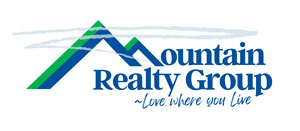It should not be surprising that an area as ruggedly mountainous as Sevier County and Blount County in the Tennessee Smokies relies on underground well reserves for providing utility water to an enormous percentage of our homes, offices and vacation properties, but we have had in years past many clients express initial surprise, and occasionally dismay, that the house/property they are looking at far away from the city and deep into the mountains does not offer city water. In this article, we wanted to highlight this fact and get prospective Smoky Mountain citizens in the know for owning for a house relying on well water.
Previous experience also behooves us to remind readers that modern houses with wells are not the circular brick structures surrounding holes in the ground and intending for you to raise up the water needed with a bucket. We (largely) do not do that anymore! The wells used for modern Smoky Mountain homes are large, sophisticated systems, usually underground but not always, that take in water from sources like rain, soak down through about 1,000 feet of ground and into a large container that is hooked up to your property’s water sources like showers and sinks. The dirt and rocks the water flows through works as a natural filter removing many substances from the water while also taking on some from the dirt and rocks on the way down. Because this source of water is derived naturally, properties with wells have the advantage of not having a monthly water bill from the city to expect, but the tradeoff to that means other costs along the way as well as the scenario that you’re on your own for a while if the well is too dry to provide adequate water to your property, or another obstacle that prevents water from coming up for use.
Rismedia.com writes:
“If you buy a house with a well, you must take some precautions. Well inspections are your way of ensuring the purity of the water is good enough to drink. When purchasing a property with a private water source, a well inspector should be consulted first. Having a well inspection will ensure you have plenty of excellent water. Typically, a well inspection is not conducted by a general home inspector. It will be outside the cost of a home inspection. The inspection will ensure the well meets the state requirements and that there isn’t damage to the well’s construction. Drilling a new well could cost $10,000 or more, so you want to ensure the well in a home you are looking to buy isn’t seriously damaged.
Well inspections become especially crucial when buying abandoned properties and other homes that have not been lived in for an extended period of time. A home typically needs between 100 and 120 gallons per person daily. This means a flow rate of between 6 and 12 gallons each minute to provide enough water to the home. The water inspector should also check the pressure tank. This tank ensures instant access to water from the well and regulates the pressure. They will check for signs that the tank needs to be replaced, like leaks, rust, or other problems that could contaminate the water or stop the supply.”
Concerning water quality, Rismedia.com also writes this:
“Water sourced from a well should be tested on a regular basis for contaminants such as bacteria and metals. If well water coming from the tap tests high for lead, it could be that the water in the well is too acidic, which causes lead to leach from pipes and fixtures. An acid neutralizing system can usually alleviate this problem without the need to replace pipes and fixtures. Other possible well water quality problems can be avoided by making sure wells are located away from septic tanks, livestock, and pooling water runoff. Well maintenance should be on a regular schedule so that any issues can be addressed before they cause health problems for the home’s occupants.
Testing the purity of the water is obviously a paramount concern and involves taking a sample of water from the home. This will be sent for testing to detail the PH levels, clarity, hardness, and reveal the minerals in the water. One of the advantages of well water is the minerals present, with nutritional and health benefits. Tests should also check if there are VOCs in the water. You don’t want to find these human-created chemicals in your water source. There could potentially be gasoline compounds like benzene, or chloroform, chemicals that are toxic and carcinogenic.”
We also recommend having a well inspector to check for problems or water quality issues apart from the standard home inspection. It will likely cost somewhere around $500, but it will be worth it to know that the well is in good shape or what it would need to fix instead of surprising you with a potential $10,000 well drilling invoice.
See the full articles referenced here at:








